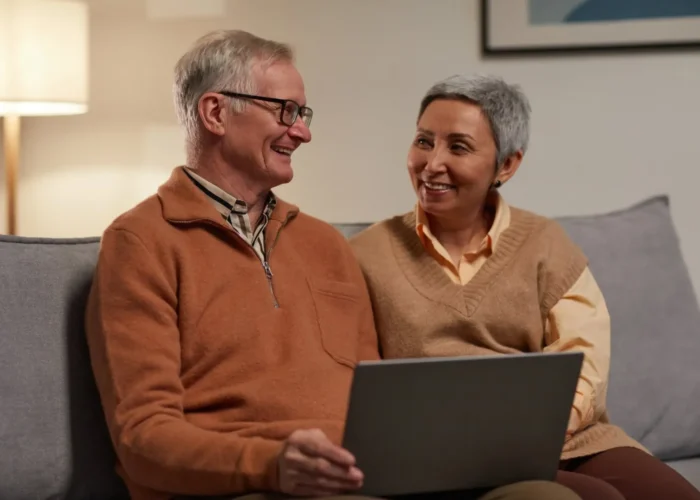Good to know
Navigating around health, social care, funding, the law and everyday information can be a challenge. We want to share with you things that might be good for you to know.
Legal Power of Attorney: Getting a diagnosis of Dementia
A dementia diagnosis does not necessarily mean that you are unable to make important decisions at that point.
However, it is good to know that you can make advanced decisions to give someone you trust a Legal Power of Attorney (LPA) covering: Property and Financial Affairs and Health and Welfare.
Making these decisions within a 6 month time space of a diagnosis of dementia, is a timeframe to work within, to ensure you get what you want in place legally.
Attendance allowance
An Attendance Allowance helps pay for your personal care if you have reached State Pension age.
It’s paid at 2 different rates and how much you will be eligible for will depend on the level of care that you need.
You can get £60 or £89.60 a week
We can help you with your form if you need help
What to expect from a care needs assessment
To get a care needs assessment get in touch with your local council and ask for a care needs assessment. Explain you need help.
The Care Needs Assessment does not cost any money and you are eligible for one regardless of your financial situation.
If you have a family carer they are eligible to a carer assessment also.
The Social Care Professional who carries out the Care Needs Assessment may come to see you at home. However, because of the pandemic many assessments are currently being carried out over the telephone.
The Assessor will ask you about how you manage every day tasks.
The assessor will also talk with other healthcare professionals who care for you ( Like your GP or nurse)
The council must do their best to help you with things you need support with now and what you might need in the future.
Paying for your own care (self-funding)
You will not be eligible to help with the cost of care from your local council if:
- You have savings worth more than £23,250
- You own your own property (this only applies if you are moving into a care home)

Best Practice
We work hard to keep up-to-date with best care practices around the world at BeHappy@Home. Our CEO is an experienced Registered Nurse who takes quality of care as seriously as she does happiness. Our care and companionship approaches are influenced by:
The Eden Alternative Care Home Philosophy
We do not have care homes and our care and support is provided for you in your own home. However, we like the philosophy.
Below are the Eden Alternative 10 principles:
- That in any setting, a risk is that people can feel lonely, helpless and/or bored
- That ‘Edenising’ homes have an abundance of different things going on, a vibrant environment, full of varied activities, connected with nature, building strong community links, expanding life histories to enrich the lived experience.
- That an antidote to loneliness is loving companionship.
- That a antidote to helplessness is the fostering of care partnerships
- That an antidote to boredom is meaningful, and spontaneous activity
- That meaningless activity (and boredom) can be corrosive to the human spirit
- That medication is regarded as the servant of people not ‘their’ master
- That ‘more say’ devolves to and empowers individuals
- That culture and practical innovation (or ‘Edenising’) is an ongoing journey
- That effective leadership is seen as the key, and one which delivers effective education, evidence based learning and progressive development.

The Pool Activity Level (PAL) Instrument
We follow the work of Jackie Poole who has developed the PAL Instrument. The PAL Instrument has a checklist of statements that identify how an individual living with dementia, can manage every day activities. Understanding this information enables us to work within a framework to personalise our customers care and support that will best support our customer within their level of ability. This approach enables us to support our customers to continue to grow and engage with their life, focusing on what they CAN DO.
National Institute Centre of Excellence (NICE) Guidelines
We follow NICE in all aspects of our BeHappy@Home services. Ensuring that we are keeping track of best practice at all times.
Getting Feedback
We seek feedback from our customers, their relatives our team and the professionals who refer customers to us. It is important to us that we know about your experience of our service; what we do well and what you think we could do better. We are truly committed to providing a service for you, which is outstanding. We want our teams to be happy and engaged with us as a company and our values:
- G – Gratitude
- R – Respect
- E – Empowerment
- A – Appreciation
- T – Time to Give
Customer Advocate – Non-Executive Director
We have a customer advocate Non-Executive Director on our Advisory Board. Angie ensure that our customers voices are being heard at every level of our Community Interest Company. Promoting quality through lived experiences.
Understanding health & social care
The Care Act 2014
The Care Act is the law that sets out how adult social care in England should be provided. The Care Act helps to improve people’s independence and wellbeing. It ensures the wellbeing of people in need of care and support services. The Care Act states that providers must promote a person-centred approach to the care and support they provide.
The 6 Principles of the Act:
- Empowerment
- Protection
- Prevention
- Proportionality
- Accountability
There are 7 Principles of Care outlined:
- Choice
- Dignity
- Independence
- Partnership
- Privacy
- Respect
- Rights
- Safety
- Equality
- Inclusion
- Confidentiality
Advanced decisions
An advanced decision to refuse treatment lets your healthcare team know your wishes if you are not able to communicate them.
Mental Capacity Act 2005
The Mental Capacity Act (MCA) is designed to protect and empower people who may lack the mental capacity to make their own decisions and their care and treatment. It applies to people aged 16 and over.
What you can expect from a good home care provider
- You can expect Behappy@Home Services to keep you safe
- You can expect Behappy@Home services to be effective
- You Can expect BeHappy@Home services to be caring
- You Can expect Behappy@Home services to be responsive to your needs
- You can expect BeHappy@Home services to be Well-led
